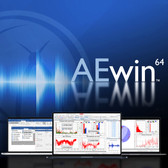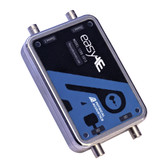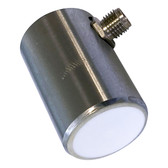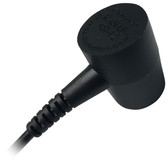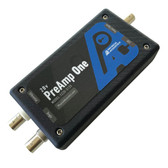MISTRAS
Engineering
Vertically Integrated AE
Product Development
Our Engineering organization consists of various engineering talents and disciplines, including Mechanical Engineers, Electrical Engineers, Software Engineers, and Sensor Engineers. Many of our engineers hold advanced degrees, including PhDs and Master's degrees. Our staff is able to develop complete NDT systems, from the sensors, to the electronic circuit boards, mechanical system packaging, software development, IT and internet related monitoring and reporting, application expertise, and robotic automation for industrial turn-key solutions.
Our Engineering organization is fully ISO-9001 quality certified. Each product we develop is manufactured under the ISO-9001 system of procedures, and is supported by detailed design and testing plans to guide the design process and ensure overall quality.

Electronic Development
Our engineering staff designs 100% of the circuitry used in our systems, using tools such as Altium Designer, and DFM. We carry out PCB design and development, using both automated and semiautomatic circuit routing. Our digital designs utilize Field Programmable Gate Arrays (FPGAs), Programmable Logic Devices (PLDs), and CMOS Programmable Logic Devices (CPLDs) for integrated circuits, as well as AVR, ARM-9, and Intel processors for applications requiring more advanced signal processing and communications capabilities.

Mechanical Development
Our Mechanical Engineers and Draftspersons utilize CAD software to develop product packaging, test fixtures for applications, and complex, fully automated multi-axis electromechanical systems for turnkey inspection systems. Our engineers model all their designs in Solidworks, and perform all their fabrication drawings in Solidworks or Autocad. In terms of finite element modeling (FEM), our engineers use COSMOSworks for stress and thermal analysis, as well as other FEM software such as ABACUS and ANSYS.

Product Testing
Our Engineers utilize a large and complete laboratory to develop and test our products, beginning by proving designs on lab test benches. Next, validation assures each design meets the requirements and specifications of the design plan, customer contract, in addition to industry standards. Our engineers develop test procedures for each circuit board and system, providing the manufacturing and customer service teams with support. Test and calibration records are kept for each board and system, which is available to the customer.

Sensor Development
Our full-time engineering staff develops our Acoustic Emission sensors, utilizing complete sensor development and modeling capabilities to develop sensors that are among the best, industry-wide. Our engineers utilize Mechanical and Electronic CAD packages to develop our sensors, Solidworks for mechanical packaging, COSMOSworks for Finite Element Modeling, and ALTIUM Designer for our electronic circuit boards. Each sensor engineer is responsible for sensor design, as well as for supporting manufacturing in assuring product consistency and quality.

Software Development
We employ a large staff of software engineers who develop all software used in our operating system based products and in our embedded micro-processor systems. Most of our software is written in C++ and C#, but we also develop programs in LabView, and Visual BASIC. Our C++/C# software is developed on Microsoft Visual Studio and Microsoft.NET, and operates on Microsoft operating systems. For embedded applications, we make use of Microsoft CE in conjunction with .NET, as well as various C++ based compilers and development environments.

Analog Circuit Development
Analog circuitry is by no means dead, but plays a smaller role in electronic designs, preamplification, and filtering functions. Given this reduced role, analog circuits are very important, since they represent the transition between the sensor and the Data Acquisition circuitry. Our products are known throughout the industry operate at the lowest noise and designed using "Spice", Altium Designer, and Switcher CAD for analog circuit simulation. We use TI Filter Pro, and Filter Wiz Pro, and FIRscope for Filter synthesis.
 Loading... Please wait...
Loading... Please wait...


